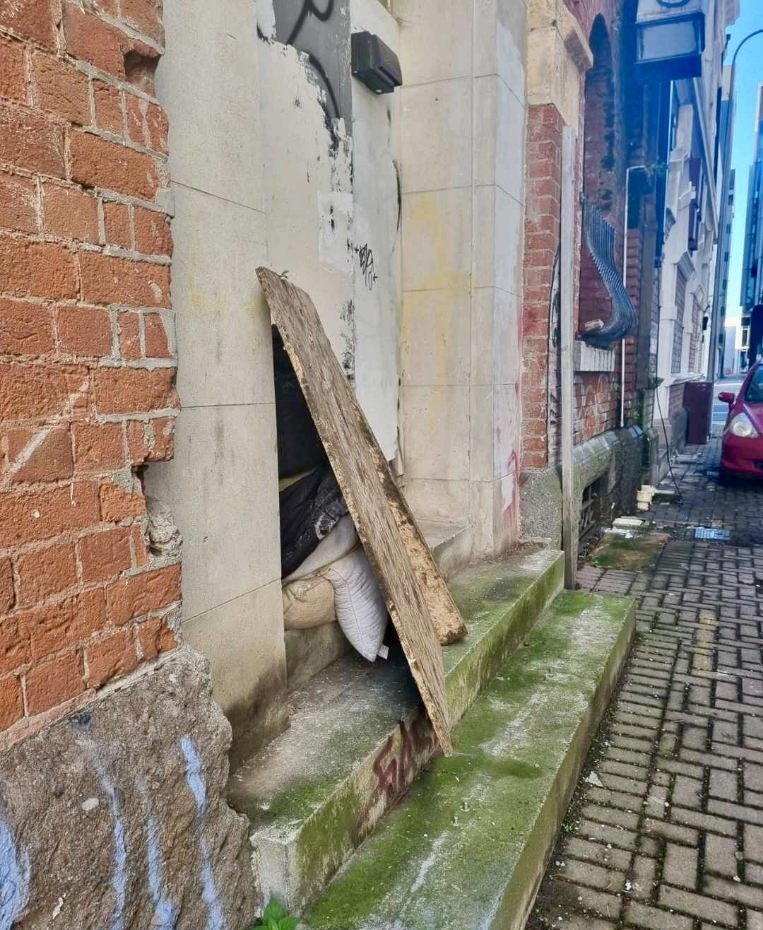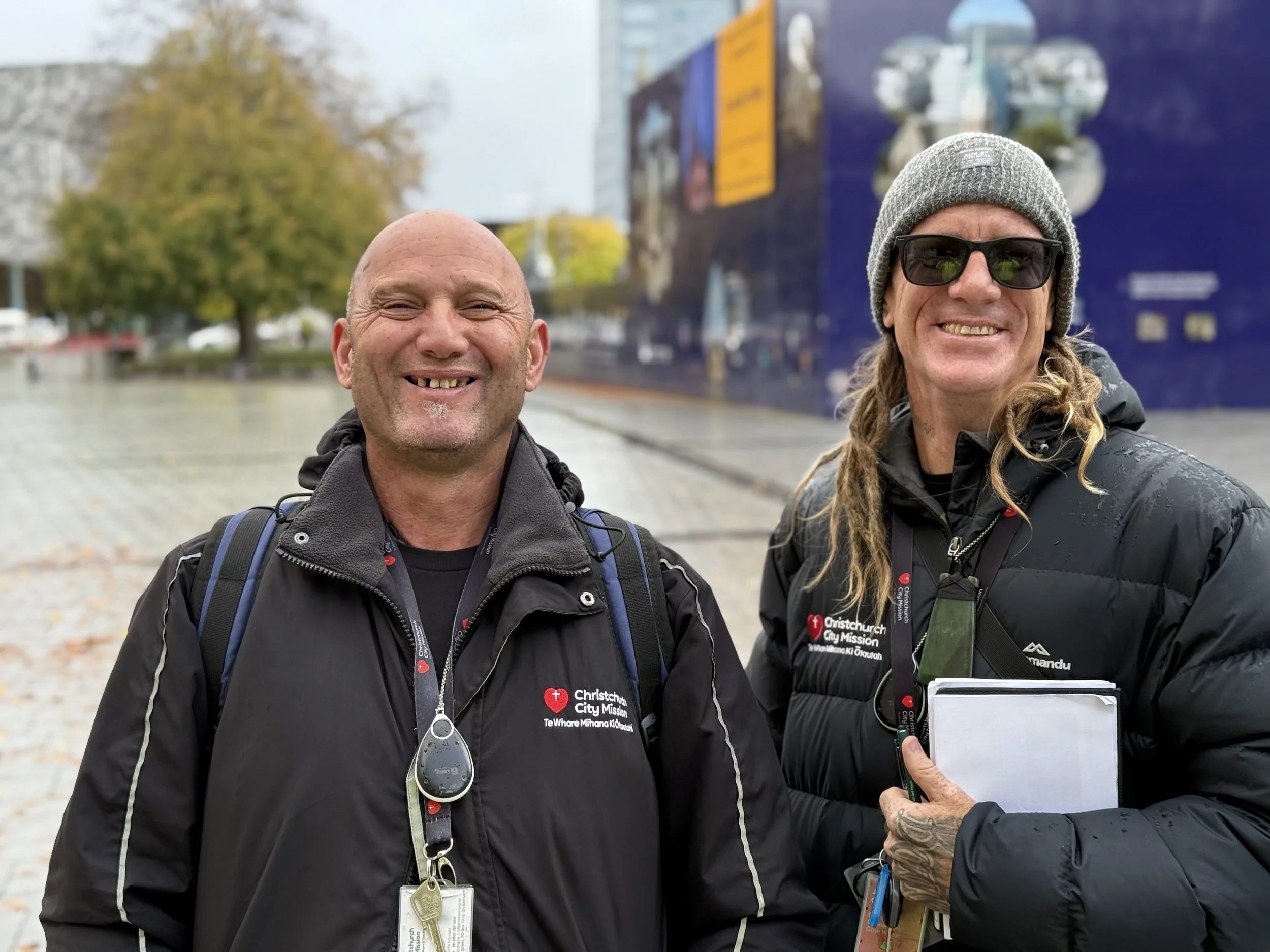Winter takes the hardest toll
It’s cold and spitting rain as City Mission Outreach workers Josh and Matiu are doing their rounds of the inner-city rough sleeping spots, checking who is where, and who is new. A young man appears in the grey, early light and walks up to them.
Make it stand out
Whatever it is, the way you tell your story online can make all the difference.
A few weeks ago our Outreach team had found him sleeping on the streets. They helped him find a place to stay, but he still walks the streets in the morning. Huddled with him on the cold wet paver stones by the Cathedral and Chalice, they talk to him about keeping on the right path and not slipping back. Then he moves away and disappears into the grey morning. Josh and Matiu are smiling though. It’s early days, but they feel like they might be winning with him.
Our Outreach Service’s workers cover the inner-city and outer suburbs to find people living on the streets, to support them, and also help guide them to our shelters and other services, plus to other appropriate agencies.
In winter they see health problems among people sleeping on Christchurch streets that should never be seen in modern times. That includes scurvy. The disease that wrecked the lives of sailors in the 18th century has been spotted and treated among our rough sleepers.
Make it stand out
Whatever it is, the way you tell your story online can make all the difference.
Scurvy damages gums and limbs when a diet doesn’t have enough fruit and vegetables and the sufferer is not getting enough vitamin C. Josh noticed the condition of a man on the street was getting worse and worse, but he was refusing to get himself treated because he was terrified that when doctors saw the sores and damage on his body he would lose some limbs. That’s how distrustful and fearful many people on the streets can be and why our take-it-slowly approach is so important.
“Luckily, I built a trusting rapport with him and he let me approach our City Mission nurses. One of them came out to the street with me and assessed him and got him some medication. Now he is better,” Josh says.
This winter we are more worried than we have been for a long time about how people on the streets are going to cope.
The number trying to get through the cold months without a house will be higher than ever and they will include many people who are not hardened to sleeping out. This is because of a variety of reasons, including a lack of accommodation, the Government’s tighter approach to emergency housing, rising under employment and unemployment, and rising costs, especially power.
We noticed things changing in August-September last year. Although it is impossible to have an accurate count, we estimate there are 250-300 people sleeping on the streets, in cars and in tents in parks etc who we engage with. The number of new faces our staff spot on their rounds continues at a new higher level – up to 2 new people a day.
Make it stand out
Whatever it is, the way you tell your story online can make all the difference.
Exacerbating the problem is the lack of housing to actually move people into from the streets. Our emergency shelters are often full, and supporting people into social housing from our shelters and transitional housing service is very hard. In one very hard month leading up to winter we couldn’t find any places for our people at Kainga Ora or the Otautahi Community Housing Trust.
In the past, most people out on the streets were those living with trauma and self-medicating to cope, which created addiction issues. Now they have been joined by other people, including more elderly, women, families, students, working people.
“When I start to see older generations on the street, I’m worried. You know, these are people who are retired and they should be in houses,” Josh says.
The physical discomfort of sleeping out includes wet feet sores, bed sores, respiratory diseases and even bed bugs “when you have poor hygiene, once your clothes are slimy, it’s the perfect breeding ground”.
Our workers offer hope in people’s darkest hours – telling them that the City Mission is able to help them because others care for them. That care includes funding support from the City Council along with the donations we get in money, sleeping bags, clothing, food. Our biggest aim is to help people experiencing homelessness find a path off the streets and to warmth, safety and happiness.
Pride in our work
Make it stand out
Whatever it is, the way you tell your story online can make all the difference.
This will be Matiu Taitoko’s second winter with our Outreach Service and he says he couldn’t be prouder of the work they are doing. He came to us from a role at Canterbury Male Survivors. He has “lived experience”, like Josh, which helps him empathise and relate to the people he finds sleeping in doorways, parks and cars. “I understand trauma and I understand drugs and I understand alcoholism. I see a lot of that here.” Then he talks about a man he met on the on the streets just that morning. “He was quiet, lonely and lost. I saw 40 people walk past him while he was having his drink. I walked past him and said, ‘good morning’. He just about choked on his drink, surprised because I was the only one that said good morning to him. That’s how we build trust and rapport. I don’t know his name, but tomorrow he might be there. So that’s when we will engage. Yeah, it’s about little steps.”
PHOTO: Outreach team Matiu Taitoko (left) and Josh Gardiner.




